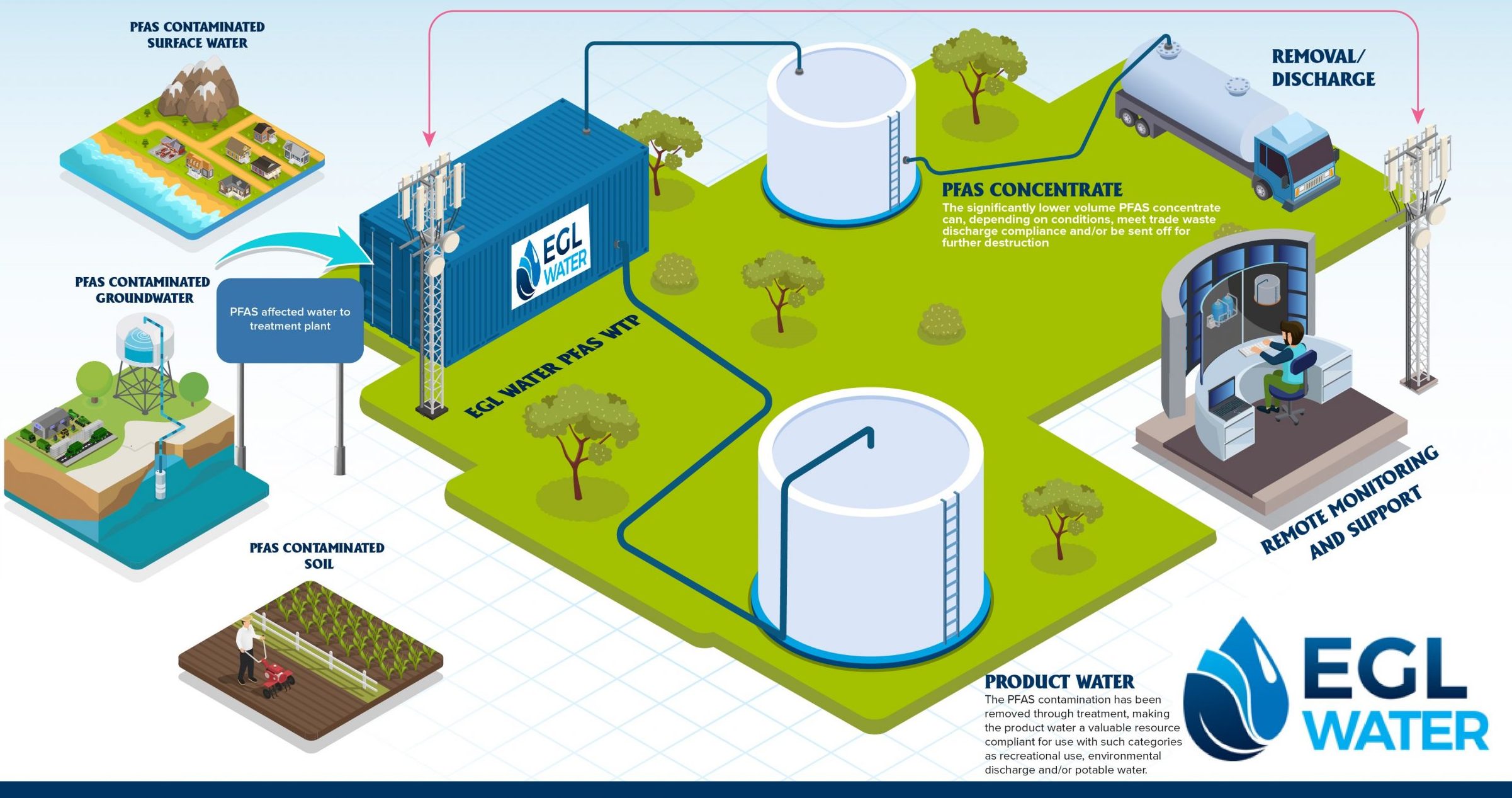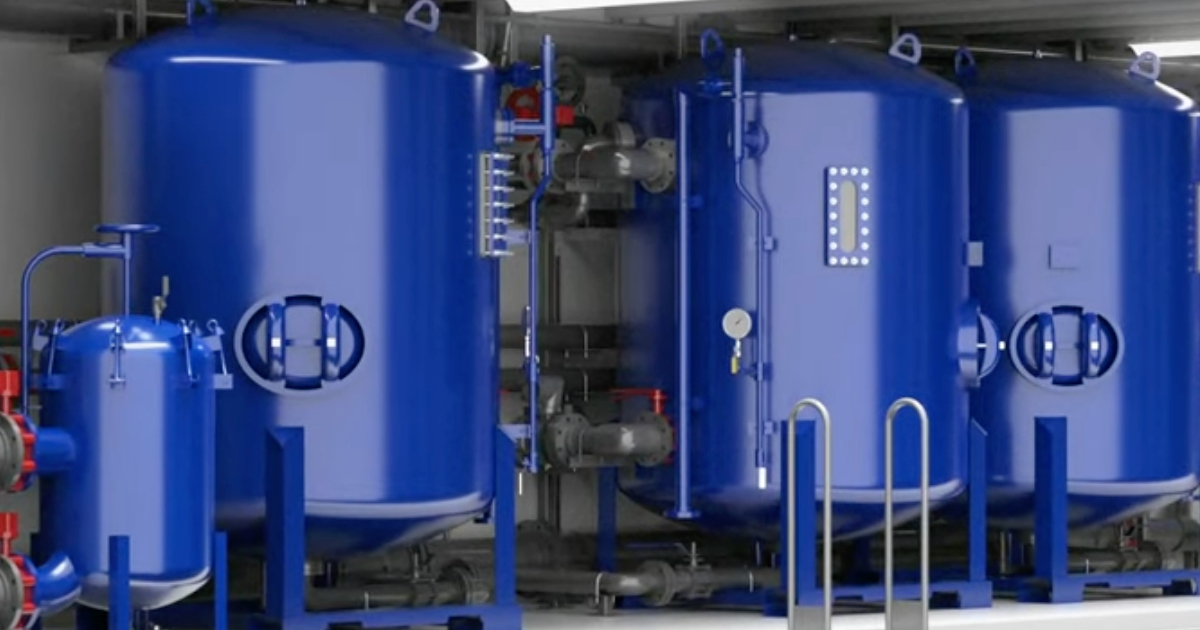M270 PFAS Treatment for Industrial Water Systems
M270 PFAS Treatment for Industrial Water Systems
Blog Article
How PFAS Therapy Makes Sure Tidy and Sustainable Water
The presence of PFAS, generally referred to as "forever chemicals," poses substantial challenges to water high quality and public health. Advanced treatment modern technologies, including activated carbon adsorption and membrane layer filtration, have actually become effective remedies to mitigate these pollutants. By using these techniques, areas can not just achieve cleaner water however additionally foster sustainable methods that shield environments. Nonetheless, the ramifications of these therapies expand beyond instant health benefits; they increase crucial concerns regarding lasting water administration techniques that have to be resolved to guarantee a durable future. What does this mean for our method to water sustainability?

Recognizing PFAS Contamination
PFAS, or per- and polyfluoroalkyl substances, have actually emerged as a significant ecological issue as a result of their extensive occurrence and persistence in the atmosphere. These artificial chemicals have been used in different industrial applications and consumer products, consisting of non-stick pots and pans, water-proof clothes, and food product packaging, as a result of their distinct buildings such as water and grease resistance.
The contamination of soil and water resources by PFAS takes place mainly with industrial discharges, firefighting foam use, and seeping from landfills. pfas management. Once released, these materials are immune to destruction, causing their buildup in the environment. This determination elevates critical issues, as PFAS can travel cross countries through groundwater and surface area water supply, influencing alcohol consumption water products and environments

Wellness Threats of PFAS
The determination of PFAS in the environment raises substantial wellness concerns for individuals exposed to these compounds. Study has actually connected PFAS direct exposure to different unfavorable health effects, including immune system dysfunction, liver damage, and enhanced danger of particular cancers cells.
The universality of PFAS in customer products, such as non-stick cooking equipment, water-repellent textiles, and food product packaging, more amplifies the threat of direct exposure. Consuming water contaminated with PFAS is a considerable worry, as these chemicals can leach right into groundwater sources. Vulnerable populaces, including youngsters and those living near industrial websites, may deal with increased threats due to their creating systems and prospective for higher direct exposure degrees.
As understanding of these health threats remains to expand, regulatory agencies are starting to develop guidelines for PFAS degrees in drinking water. Public wellness initiatives are necessary to reduce direct exposure and protect neighborhoods from the long-term impacts of these hazardous compounds.

Cutting-edge Therapy Technologies
Just how can we efficiently tackle the obstacles presented by PFAS contamination in water sources? Cutting-edge treatment technologies are arising as important solutions in the mission for clean his explanation water. These approaches concentrate on the elimination or destruction of per- and polyfluoroalkyl compounds (PFAS), which are infamous for their determination in the environment.
One appealing approach is adsorption utilizing advanced materials, such as turned on carbon and ion exchange resins. These products have actually shown efficiency in capturing PFAS particles from water. Another notable technology is membrane purification, which uses nanofiltration and turn around osmosis to separate pollutants at the molecular degree, hence providing a barrier versus PFAS.
In addition, progressed oxidation processes (AOPs) employ strong oxidants to damage down PFAS substances right into harmless byproducts. This technique is specifically effective for treating extremely infected water resources. Bioremediation techniques, utilizing details microorganisms, are likewise being discovered to degrade PFAS.
As research continues, crossbreed systems that combine several modern technologies may use enhanced performance, attending to the complexities of PFAS contamination. The advancement and execution of these ingenious therapy technologies are crucial steps towards guaranteeing the security and sustainability of our water sources.
Benefits of Efficient PFAS Therapy
Properly treating PFAS contamination in water resources significantly enhances public health and ecological security. PFAS, usually described as "permanently chemicals," are immune to degradation and can build up in the body, bring about major health risks such as cancer cells, liver damage, and immune system disorder. By carrying out efficient treatment approaches, areas can minimize direct exposure to these harmful substances, inevitably boosting the wellness outcomes of their populaces.
Additionally, successful PFAS treatment adds to the conservation of local ecosystems. Polluted water can negatively influence aquatic life and disrupt the delicate balance of neighborhood habitats. By ensuring tidy water, therapy processes secure biodiversity and maintain environmental honesty.
Additionally, efficient PFAS removal can foster public confidence in water top quality. When communities are guaranteed that their alcohol consumption water is totally free from hazardous pollutants, it view website advertises a sense of security and health. This count on is crucial for community interaction and assistance for recurring water management efforts.
Future of Water Sustainability
In the middle of growing problems regarding water top quality and shortage, the future of water sustainability depends upon ingenious strategies and collective initiatives. additional reading As communities deal with the looming dangers of impurities like PFAS, the advancement of advanced treatment technologies is crucial. These innovations not only concentrate on the removal of harmful materials however additionally promote the reuse and recycling of water, thereby lowering overall need.
Moreover, effective water administration plays an essential role in ensuring lasting practices. Policymakers need to integrate clinical research study with governing frameworks to develop clear standards for water use and treatment. Stakeholder interaction, consisting of neighborhood areas and sectors, cultivates a sense of common responsibility and encourages lasting techniques throughout various markets.
Financial investment in facilities is additionally essential; upgrading aging systems to incorporate modern-day purification and filtration methods can significantly enhance water top quality. Welcoming green innovations, such as all-natural filtration systems, can offer green solutions.
Ultimately, the future of water sustainability lies in an alternative strategy that incorporates technology, plan, and community involvement. By prioritizing these components, we can protect our water sources for generations to find, making sure clean and sustainable water for all.
Verdict
In final thought, the reliable therapy of PFAS is crucial for making sure clean and sustainable water. By using advanced modern technologies such as turned on carbon adsorption, membrane layer filtering, and advanced oxidation processes, areas can considerably decrease the health risks connected with these contaminants. The combination of these therapy methods sustains environment protection and boosts biodiversity. Inevitably, durable PFAS therapy methods add to long-term resilience in water management, cultivating public count on water top quality and promoting sustainable techniques.
Report this page